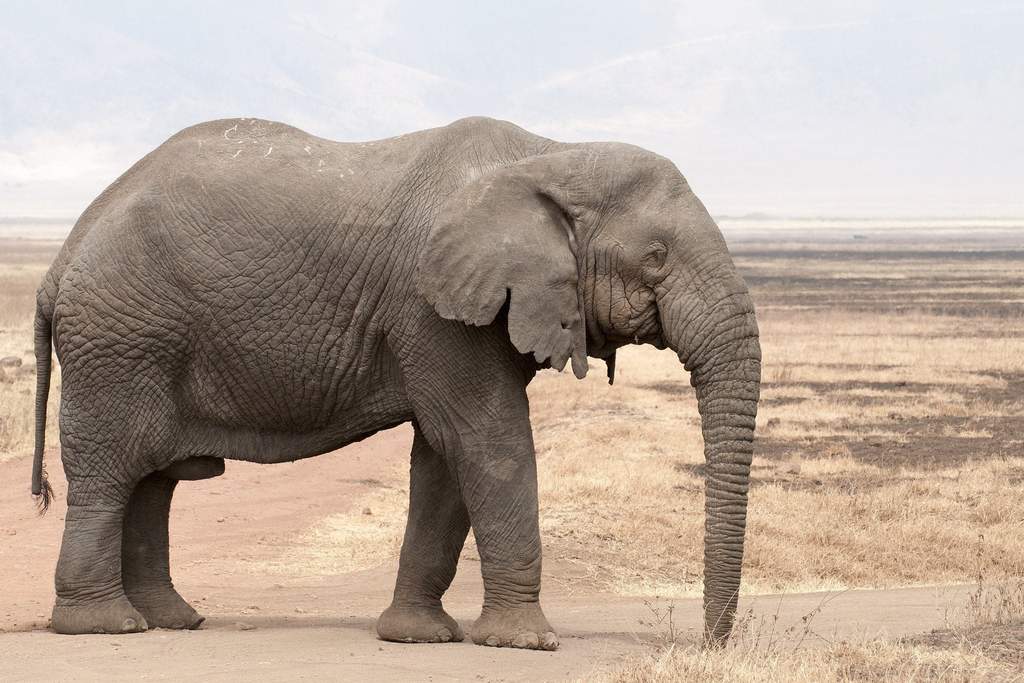After centuries of being hunted by humans for ivory, African elephants are evolving to be tuskless.
在被人类猎杀以获取象牙几个世纪之后,如今非洲象正在进化成没有象牙的物种。
As National Geographic reports, the tusks on male elephants -- a sign of virility among the gentle giants -- are notably shrinking in size thanks to the effects of ivory poaching.
据《国家地理》报道,由于象牙偷猎的影响,雄性大象的象牙尺寸明显缩小,而象牙是这种温柔的庞然大物强壮的象征。
Meanwhile, more females are being born without their long, majestic front teeth than ever before, especially in places where the effects of the ivory trade have been particularly devastating.
与此同时,越来越多的母象出生后不再和以前一样长出长而威严的门牙,尤其是在受象牙贸易影响尤为严重的地区。

That's true in Mozambique, where 15 years of civil war were financed, in part, by the sale of illegal ivory.
在莫桑比克确实如此,象牙的非法销售给长达15年的内战提供了部分资金。
Of the female elephants that survived, many were naturally tuskless, which meant they evaded the deadly attention of hunters.
在幸存下来的母象中,许多天生就没有象牙,这意味着它们避开了猎人致命的关注。
Now, these remaining ladies are passing down the tuskless trait to a new generation of daughters.
现在,这些幸存的母象正在把这种无牙特性遗传给下一代的小母象。
Experts say that before the war, only 2 to 4 percent of girl calves would be born without their coveted front teeth, which are smaller than those of their male counterparts. Today, roughly a third of the females born after 1992 -- the year the war in Mozambique ended -- never developed any tusks at all.
专家们表示,战前,只有2%到4%的小母象出生时没有它们梦寐以求的门牙,它们的门牙要比同龄的雄性小。而如今,1992年莫桑比克战争结束后出生的雌象中,大约有三分之一从未长出象牙。
Sadly, there's little doubt that this development is a direct result of the human desire for ivory.
可悲的是,毫无疑问,这种情况是人类对象牙的渴望造成的直接结果。


